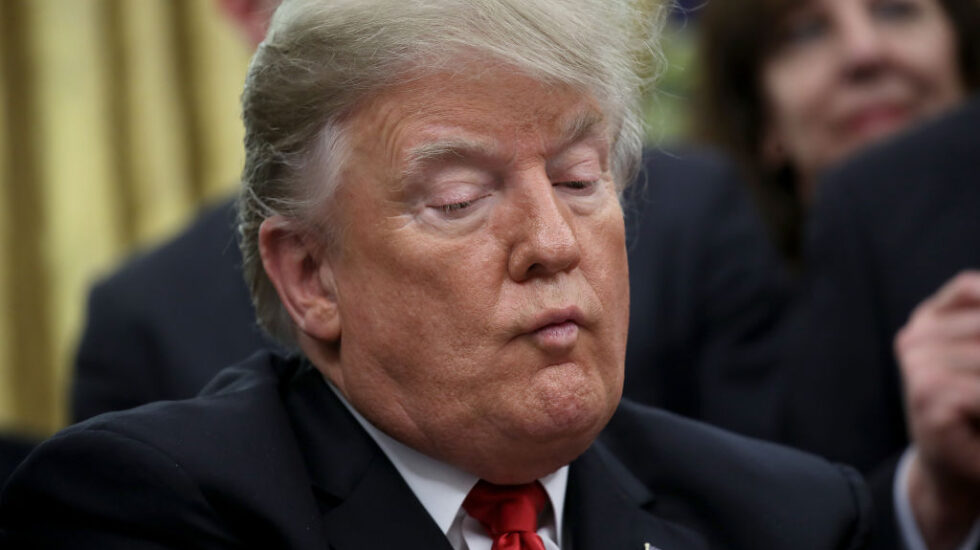For all of President Trump’s crowing over the news that special counsel Robert Mueller had concluded that his 2016 campaign did not collude with Russia, it does not appear to have helped him politically.
NBC News reports that a week after Attorney General William Barr issued a short summary of the Mueller report on March 24, Trump’s approval rating had barely budged — up just one-tenth of one percent to 43.1 percent, according to Real Clear Politics (RCP).
In other words, the president got no “bounce” from what is known of the report.
“You could argue, of course, that Americans are reserving judgment,” says NBC, until after more of the report is is made public.
“Or maybe this is just the latest and loudest example of what we’ve seen over and over again during this presidency: A gigantic news development, followed by suggestions that a critical turning point in his public standing may be at hand, followed by …. well, pretty much nothing.”
Using RCP’s data, the network notes that unlike all previous modern presidents, Trump’s approval rating has remained “within a very narrow range” — from 46 percent two weeks after his inauguration to 37.1 percent later in 2017, after the failure of his first effort to repeal Obamacare and his seeming dismissal of racism at the right-wing rally in Charlottesville VA.
“The reality, it seems, is that most Americans are set in their opinion of Trump and aren’t about to change their minds, no matter what happens,” says NBC.
This raises one big serious question about Trump’s chances of re-election: can he do in 2020 what he did in 2016?
“His victory came even though large majorities of voters didn’t like him personally, didn’t believe he had the temperament to be president and didn’t think he was qualified for the job,” says NBC.
But Trump got a significant boost from Hillary Clinton’s own unpopularity.
“Trump wouldn’t be president unless at least some people who held all of these negative views of him voted for him anyway.”



